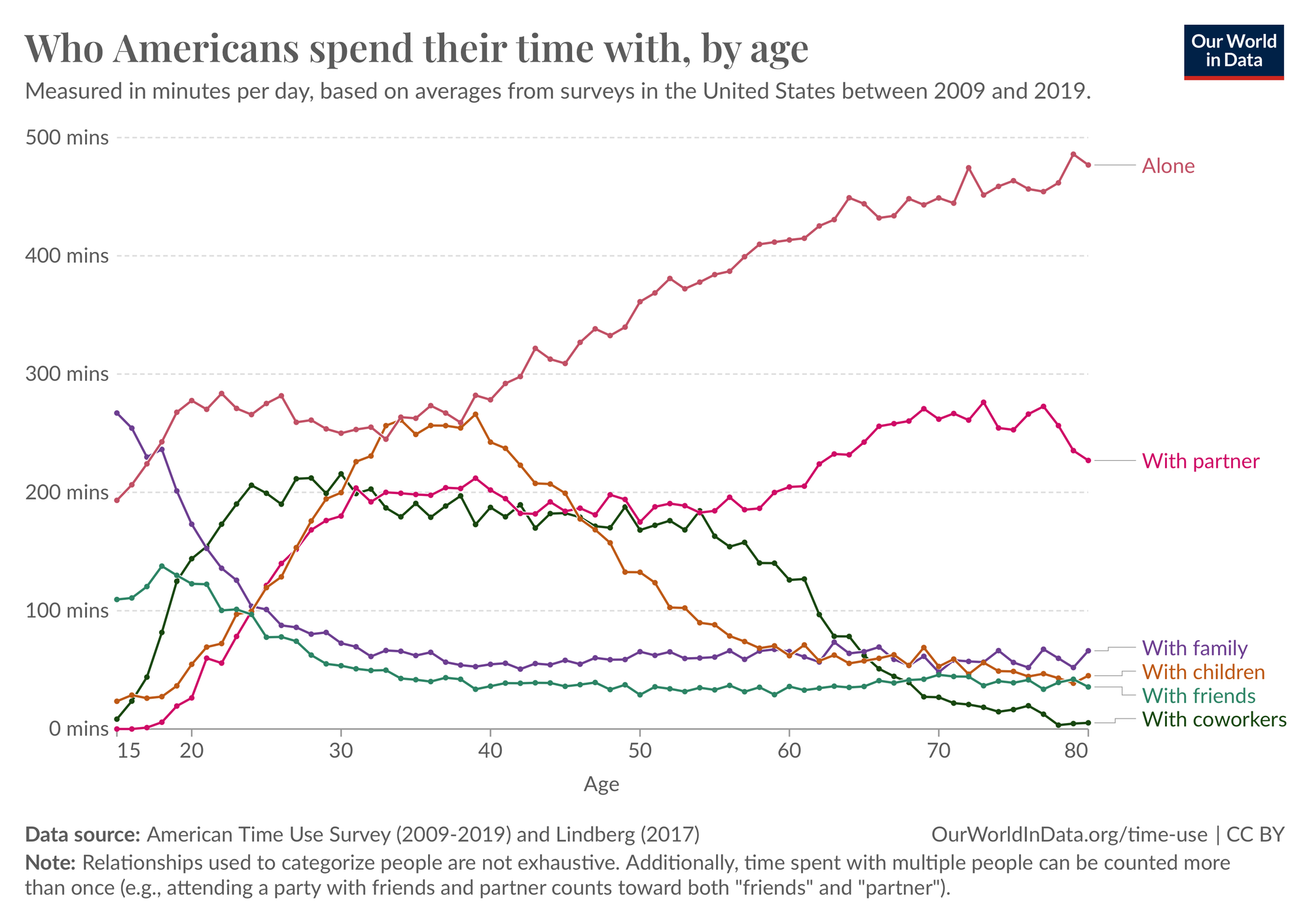Welcome to The Happier Newsletter, a weekly newsletter where I provide actionable ideas to help you build a happier, healthier, and more meaningful life.
What’s On Today
- Topic: Regret Never Comes From Doing Something
- Exercise: The Deathbed Exercise
- Example: My End-of-Life Regret List
- Question: What Are Your End-of-Life Regrets?
Regret Never Comes From Doing Something

As a Health Scientist doing research in the field of palliative care, I’m constantly confronted with the realities of mortality and the preciousness of life.
This led me to wonder: What are the most common regrets people have at the end of life?
It didn't take long before I stumbled across Bronnie Ware, an Australian caregiver who dedicated 8 years to palliative care.
When she asked people about their regrets or what they would have done differently, the following common themes surfaced again and again:
- I wish I’d had the courage to live a life true to myself, not the life others expected of me.
- I wish I hadn’t worked so hard.
- I wish I’d had the courage to express my feelings.
- I wish I had stayed in touch with my friends.
- I wish that I had let myself be happier.
These regrets fascinate me, mostly because they seem so predictable, yet we often fail to address them during our lives.
This sparked a deeper curiosity: Can we reverse-engineer this process? And, more personally, what might I regret at the end of my own life?
The Deathbed Exercise
“When people realise that their life is almost over and look back clearly on it, it is easy to see how many dreams have gone unfulfilled.” – Bronnie Ware
When you search Google “how not to regret your life,” you’ll find a plethora of "Deathbed Exercises," ranging from imagining one's final day on Earth to reflecting on life and envisioning one's last wish.
Although none of these exercises are inherently bad, I find that the most effective approach is based on a study conducted by psychologists from Cornell University titled "The Ideal Road Not Taken."
In this study, spanning six studies, psychologist administered a survey to hundreds of participants asking them about their biggest regret.
Not surprisingly, 76% admitted that they hadn't become their ideal self.
This was based on their findings that there are three main parts to how people think about themselves:
- The actual self (who they think they are).
- The ideal self (who they want to be).
- The ought self (who they feel they should be based on duties and responsibilities).
This highlights how many individuals don't pursue their dreams but instead focus on societal expectations, mirroring the sentiments found in the top 5 regrets of the dying.
To effectively reverse-engineer our regrets, it's crucial to align our actual self with our ideal self while reducing the influence of the ought self.
Here are three steps you can take:
- List your five most likely end-of-life regrets: Close your eyes and think about your deathbed. When you reflect on your life, what would be the things you know you’d regret if you never got the chance to do them? Make a list of your five most likely end-of-life regrets.
- Identify the reasons behind these potential regrets: Why do you think you’d have these regrets? For each regret, list the reason why. This could simply be one sentence or you can write a short paragraph with your reasoning. It helps to think about your actual self vs. your ideal self: What’s the gap between the two?
- Determine actionable steps you can take today to prevent it: For each regret, determine the action you can take today to start building a life you won’t regret. Ask yourself how you’re going to take steps towards your ideal self. You can make it as specific as you want.
Allow me to share my own top five end-of-life regrets, along with the reasons behind them and my strategies for reversing them.
My End-of-Life Regret List

1. Not taking care of my first foundation
Why: Taking care of your first foundation means taking care of your health. In the book: The 33 Laws of Business and Life, Steven Bartlett compares it to a table holding up everything important in your life—like relationships, work, and stuff you own. If something on the table falls, it's okay as long as the table (your health) stays strong. But if the table breaks (your health declines), everything falls apart.
How: I will prioritise my health. First goal: running a half marathon on the 6th of July 2024.
2. Not spending enough time with my parents
"You probably never thought about this, but around 90% of the time that you will have spent with your parents was done from the ages of 0 to 18." — Donn Felker
Why: As you can see from the graph, the time with your parents is limited. I dread the thought of waking up one day, realising I could have spent more time with them, only to find that time has slipped away.
How: Although I live on the other side of the world, I will prioritise spending quality time with my parents and will make sure to see them at least once a year in person.
3. Not being present in the here and now
Why: Often, we find ourselves dwelling on the past or worrying about the future, which can lead to feelings of anxiety and discontentment, preventing us from fully enjoying and making the most of our lives.
How: I will pause and embrace the present whenever I’m with friends and family or in nature, ensuring I take moments to fully appreciate the here and now.
4. Not having explored the world
Why: Travel broadens horizons, fosters cultural understanding, and creates lasting memories. I wouldn’t have met my wife if I didn’t travel across the world for a semester studying abroad.
How: I will prioritise travel experiences.
5. Not spending enough time with my own family
Why: With a baby boy on the way, ensuring quality time with my growing family is paramount.
How: I will manage my personal/professional commitments and time so I can be a present mother.
What Are Your End-of-Life Regrets?
While I'm still on my journey toward fulfillment, this list serves as a daily reminder to prioritize actions that align with my values and aspirations.
I encourage you to do this exercise. Consider it an opportunity to gain clarity on potential regrets and prioritize actions that lead to a life well-lived.
In turn, this will help you get a better understanding of the things you find most important in life, which allows you to build a life you won’t regret.
To conduct your own reflection, ask yourself:
- What are the potential regrets you might harbor at life's end?
- Are your current actions conducive to avoiding these regrets?
- If not, what changes can you make to build a fulfilling, regret-free life?
As the old adage goes: It is not the things you do in life that you regret, it’s the things you don’t do.
If you want to learn more about the regrets of the dying, Bronnie Ware wrote a book about her experiences called: The Top Five Regrets of the Dying.
